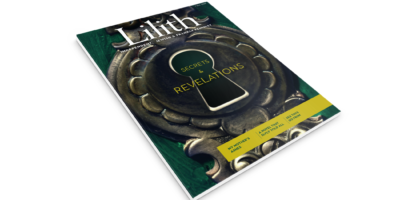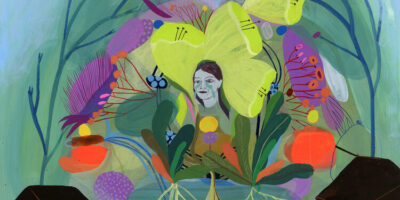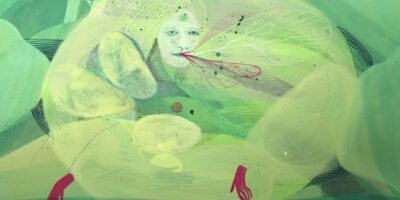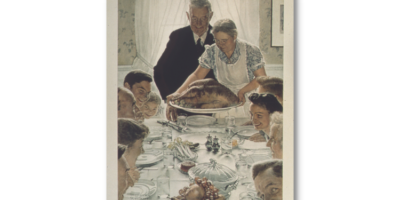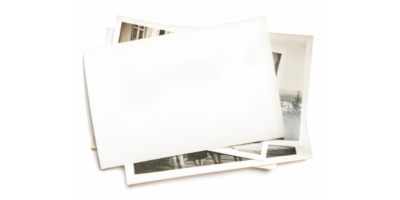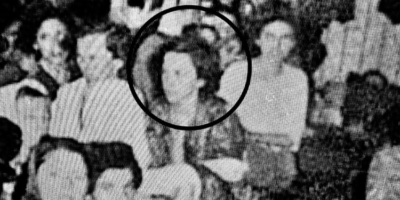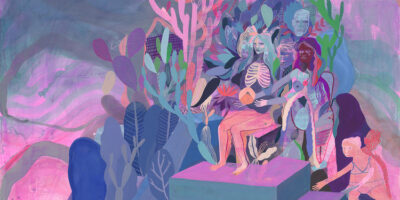
Our Red Book: Intimate Histories of Periods
When Rachel Kauder Nalebuff was 12, her elderly Tante Nina told her a story that made the Holocaust palpably real. Nina, her mother and siblings were on a Poland-to-Belgium train attempting to escape Nazi persecution. It was 1940. When the train reached the German order, guards entered and began strip-searching the passengers.
“In my fright, I completely lost it and peed in my pants,” Tante Nina confided. “But when I looked down, what I saw was a stream of red.”
Kauder Nalebuff found her great aunt’s account startling. And she also noticed that when Nina stopped talking, other members of the family began sharing their own first period stories. The scope and range of the recitation amazed her, and a few years later, as a teenager, she began writing these stories down.
Her first book, 2009’s My Little Red Book, chronicled the onset of menstruation for a diverse group of people. Her latest, Our Red Book [Simon and Schuster, $27.99], builds on that foundation and blends the personal and the political. It’s wide-ranging, with 67 essays, graphics, research papers, and interviews tackling a host of intersecting issues: Aging, pregnancy, parenting, sexual and gender identity, the mistreatment of prisoners, and the growing movement for menstrual equity among them.
What’s more, first-person narratives by people who are nonbinary, trans, or transitioning are showcased, giving voice to men who bleed and women who don’t. They join other contributors whose entries reflect divergent viewpoints about menstruation, from reverent celebration to revulsion.
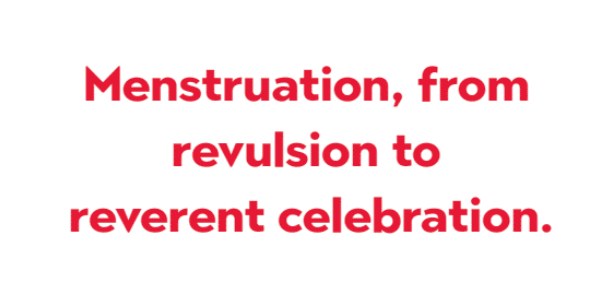
Brazilian Claudia Pacheco, for example, writes about collecting menstrual blood for use in her garden. She notes that when her son asked what she was doing, she told him that “this blood made you grow. If we take this blood and water the plants with it, it will make them grow, too.” Her son found this fascinating and seemed awestruck, she writes. Her conclusion? “This may be a new way of educating young people about menstruation,” a method that enhances appreciation of reproductive capacity and the power to create new life.
But, of course, not everyone shares this eagerness to venerate menstruation. Axel Gay, a high school junior who is currently transitioning, writes that “developing into a woman was traumatizing for me. I was 13 when my period started…I was ashamed. I was embarrassed and afraid. Like this was the gavel slamming down, deeming me a woman. Inevitable and irreversible.” Similarly, Piper Zschack writes that when his period began, he went into mourning. ”Periods were an evil that ended when I was able to go on testosterone,” he writes.
These are poignant revelations, but in addition to intimate accounts, Our Red Book also zeroes in on the political progress that has been made by the worldwide menstrual equity movement. Kauder Nalebuff ’s interview with Monica Lennon—the Scottish Parliamentarian who introduced the Period Products Act and helped steer it into law—is riveting. The legislation, which passed in 2020, made Scotland the world’s first country to provide free period products in public buildings.
“Well ahead of the legislation being approved,” Lennon told Kauder Nalebuff, “People were organizing… We had workers taking action in their trade unions. We had soccer fans lobbying to get period products in their stadiums.”
Period poverty, Lennon explained— the reality that countless students miss school because they cannot afford tampons or pads—add gravitas to the argument, leading activists in numerous countries, including the U.S., to center the exorbitant cost of menstrual products within a broader social justice framework. Kauder Nalebuff sees this as having wide-scale implications for progressive organizing.
As she concludes: “Once you start viewing access to period products as a right, what’s to stop you from asking for the right to clean water or nourishing food, or healthcare, or rest, or dignity, or…What if looking closely at menstruation was a way for young people to begin peeling back the complex layers of injustices embedded in daily American life.”
What if, indeed?
Eleanor J. Bader is a frequent Lilith blogger and writer based in Brooklyn, NY.

